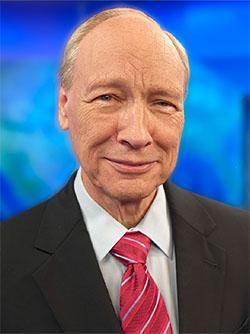Religion: Canada’s Four- Letter Word
What does it reveal about our society when “religion” has become a “dirty word,” even among the religious?
“Whereas Canada is founded upon principles that recognize the supremacy of God and the rule of law….” So reads the preamble to the Canadian Charter of Rights and Freedoms, written less than 40 years ago, in 1982. While many at the time questioned the necessity to include God in a foundational governing document, it would be foolish to imagine such a preamble being written in Canada today. The decline of religion has been a favorite topic of many, and the numbers are worth investigating. Let’s pause for a moment to examine the current state of belief in a nation where “religion” has become a dirty word.
In April of 2017 the Angus Reid Institute, perhaps the most respected polling agency in Canada, released an extensive study on the religious beliefs and practices of Canadians, including their outlook on religion itself. The results are quite telling. While the rise of atheism and the decline in belief come as no surprise, the number of individuals described as non-believers actually fell short of the total described as religiously committed.
Uncertainty Abounds
The study, titled “A Spectrum of Spirituality: Canadians Keep the Faith to Varying Degrees, but Few Reject It Entirely,” divided belief into four different categories: Non-Believers (19 percent), Spiritually Uncertain (30 percent), Privately Faithful (30 percent), and Religiously Committed (21 percent). When asked perhaps the most basic question in terms of religion, “Do you believe that God or a higher power exists?,” the majority of those described as Spiritually Uncertain (87 percent) and Privately Faithful (57 percent) responded with uncertain answers. They said either “Yes, I think so,” or “No, I Don’t Think So,” as opposed to the more definitive responses of “Yes, I definitely do believe,” or “No, I definitely do not believe.”
This rise in uncertainty is having an immense impact on the practices of Canadians. When one is unsure of the existence of a supreme arbiter of truth, it becomes increasingly easier to abandon previously held values. While “Christianity” remains the largest religious identifier in Canada, you may be surprised to learn the identity of the second. Laura Stone, writing for Global News, states that “nearly one-quarter of Canada’s population has no religious affiliation” (emphasis ours) (“The second-largest religious faith in Canada? Nothing.” GlobalNews.ca, May 8, 2013). It is important to note here that “nothing” includes not only those who reject the existence of a Creator, but also those who simply choose not to identify with any religious faith. Identifying with a specific religious organization usually means sharing a set of values with others of like belief. Removing that connection has facilitated an increasing number of Canadians to adopt or accept practices that they would have otherwise seen as immoral.
Noting this decline in religious affiliation, the Pew Research Centre explains that “the rise of the ‘nones’ in Canada has been accompanied by a substantial drop in religious commitment in the Canadian public…” (“Canada’s Changing Religious Landscape,” June 27, 2013). This drop in religious commitment is most evident by the steep decline in attendance for religious services other than weddings and funerals. The same research shows that, as recent as 1986—four short years after recognizing “the supremacy of God” as a founding principle of the nation—43 percent of Canadians attended a religious service at least once per month. By 2017, that number has fallen to less than half that number. Now, only 20 percent of Canadians attend at least once a month. Even among those considered Religiously Committed, regular attendance is only 69 percent.
With attendance waning, should it come as any surprise that Canada’s knowledge of the Bible is quickly evaporating? “Broadly speaking, religious literacy among Canadians has declined dramatically. Twenty years ago, about half the Canadian population could name the apostle who denied Jesus three times, while almost 60 per cent could name the first book in the Old Testament. As of [2015] those percentages have declined to 31 and 42 respectively” (Aaron Hutchins, “What Canadians Really Believe: A Surprising Poll,” Maclean’s, March 26, 2015).
What should we take away from these results? Should we be encouraged that one-in-five Canadians are Religiously Committed? After examining the data, one must wonder if the bar for religious commitment has simply been lowered. Two-thirds of Canadians believe that God or a higher power exists, but is that belief resulting in action? Is it affecting the way Canadians are living their day-to-day lives? The dramatic drop-off in both church attendance and even the most basic of biblical knowledge indicates that it is not.
Religion—the New Dirty Word
Are you comfortable around those who are religiously devout? What about those who are critical of religion? According to the Angus Reid Institute, half of Canadians (50 percent) describe feeling uncomfortable around people who are religiously devout, including fully one-third (33 percent) of the “Religiously Committed.” And this despite the findings that “Religiously committed Canadians tend to be the most concerned about others, the happiest and most generous” (Ray Pennings, “It is time to change the narrative around religion in Canada,” National Post, April 13, 2017). Clearly something is wrong when a third of those who are “Religiously Committed” find themselves uncomfortable around the religiously devout. Canadians, it seems, would prefer to surround themselves with those who criticize religion (where only 42 percent are uncomfortable).
Does it come as any surprise that “just one-in-four Canadians (25 percent) selected the word ‘religion’ as having a positive meaning to them while one-in-three (33%) said they view the word negatively” (Angus Reid Institute)? When asked about this particular finding, Angus Reid, the institute’s founder and chairman, succinctly captured the gravity of the result. “The word ‘religion’ itself has become a little bit of a four-letter word” (“Canadians may be vacating the pews but they are keeping the faith: poll,” National Post, April 13, 2017).
Does Religion Have to Fail?
Is religion truly a negative? Religion has been a driving force in the world since the dawn of man. Yet, far too often, men take up the mantle of religion to promote their own aspirations, without any focus on social order, morality and truth-seeking. Sadly, such corruption even infected portions of the Church that Jesus Christ founded through His disciples 2,000 years ago.
You may be surprised that many of the widely accepted traditions of professing Christianity around the world today are nowhere to be found in the holy Scripture, the Bible. Our free publication, Restoring Original Christianity, examines what the religion of the early Christian Church actually looked like.
This booklet demonstrates that much of the original direction provided by Jesus Christ and the Apostles was later rejected by many organized faiths that called themselves Christian. Numerous historians have noted this phenomenon. The original behaviours expected of a follower of Jesus were framed in the context of the Decalogue (the Ten Commandments), including admonitions such as, “You shall not commit adultery,” “You shall not murder,” “You shall not steal,” and “You shall not bear false witness” (see Romans 13:9–10). If those referring to themselves as Christians all lived up to these ideals, perhaps religion would no longer be considered a four-letter word.






